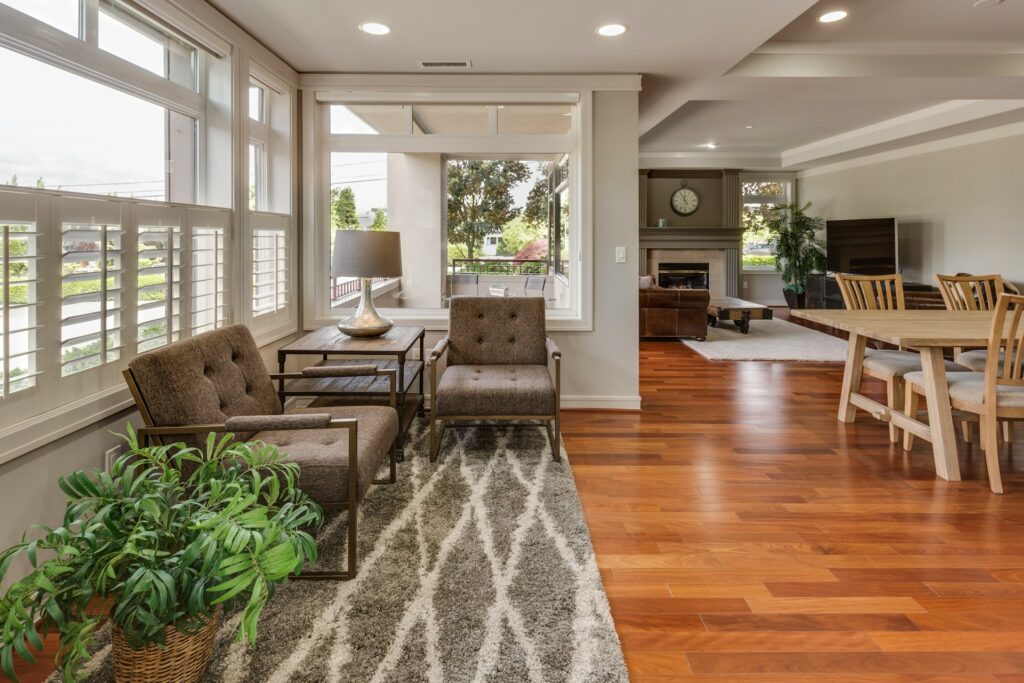
Living in your home during a renovation can be challenging yet manageable with careful planning and proactive strategies to minimize disruptions and maximize comfort. Whether undertaking minor updates or extensive renovations, maintaining functionality and safety while coexisting with construction activities requires thoughtful consideration and practical solutions. This guide offers essential tips and tricks for living in your home during a renovation, providing insights into key considerations and strategies to ensure a smooth and positive living experience amidst ongoing construction.
Establish Clear Communication with Contractors:
Foster open communication with contractors, designers, and project managers to establish expectations, timelines, and construction schedules. Discuss daily work hours, noise levels, and areas of access to minimize disruptions and maintain privacy. Regular updates and progress meetings help address concerns, coordinate logistics, and ensure alignment with renovation goals and household routines.
Designate a Renovation-Free Zone:
Create a designated renovation-free zone within your home where you can retreat and relax away from construction activities. Choose a secluded area, such as a bedroom or living room, to minimize exposure to dust, noise, and debris. Maintain clear boundaries and communicate these areas to contractors to prioritize cleanliness and minimize disruptions in your sanctuary space.
Protect Furniture and Belongings:
Safeguard furniture, electronics, and personal belongings from dust, debris, and potential damage during renovations. Cover furnishings with protective sheets or plastic wraps, relocate fragile items to secure areas, and consider renting temporary storage for large or valuable possessions. Implement proactive measures to preserve cleanliness and prevent accidental damage throughout the renovation process.
Maintain Safety and Accessibility:
Prioritize safety measures to minimize hazards and ensure accessibility within your home during renovations. Keep pathways clear of obstacles, secure construction zones with safety barriers or signage, and use non-slip floor coverings to prevent accidents. Install temporary lighting in work areas and maintain emergency exits for quick evacuation in case of emergencies.
Adapt Daily Routines and Schedules:
Adjust daily routines and schedules to accommodate construction activities and minimize disruptions to household activities. Coordinate renovation schedules with essential tasks, such as meal preparation, bathing, and sleeping, to maintain comfort and functionality. Plan activities outside the home during noisy or disruptive construction phases to enhance peace and tranquility within your living environment.
Manage Dust and Air Quality:
Implement strategies to control dust, improve air quality, and maintain a healthy living environment during renovations. Seal off renovation areas with plastic sheeting or temporary walls, use HEPA air purifiers to filter airborne particles, and clean surfaces regularly to reduce dust accumulation. Ventilate your home by opening windows or using exhaust fans to circulate fresh air and minimize indoor pollutants.
Minimize Disruptions to Utilities:
Coordinate with contractors to minimize disruptions to essential utilities, such as water, electricity, and HVAC systems, during renovations. Schedule temporary shutdowns or adjustments to utility services during non-peak hours to ensure uninterrupted access to basic amenities. Maintain clear communication with utility providers and contractors to address any unforeseen issues promptly and restore services efficiently.
Stay Organized and Declutter Regularly:
Coordinate with contractors to minimize disruptions to essential utilities, such as water, electricity, and HVAC systems, during renovations. Schedule temporary shutdowns or adjustments to utility services during non-peak hours to ensure uninterrupted access to basic amenities. Maintain clear communication with utility providers and contractors to address any unforeseen issues promptly and restore services efficiently.
Stay Organized and Declutter Regularly:
Organize belongings, declutter living spaces, and streamline household items to optimize space and maintain functionality during renovations. Label storage containers, categorize items by priority or frequency of use, and store essentials in easily accessible locations. Regularly declutter renovation areas to facilitate construction activities and promote a tidy and orderly living environment throughout the renovation process.
Practice Patience and Flexibility:
Embrace patience and flexibility as key attitudes to navigate challenges and unexpected setbacks during home renovations. Anticipate delays, revisions, and adjustments in construction plans, and maintain a positive mindset to adapt to changing circumstances. Communicate openly with contractors, prioritize safety and quality, and celebrate milestones and progress achieved toward realizing your renovation goals.
Conclusion:
In conclusion, living in your home during a renovation requires proactive planning, clear communication, and practical solutions to ensure a comfortable and harmonious living experience amidst ongoing construction activities. By implementing strategies to minimize disruptions, prioritize safety, and maintain cleanliness and organization, homeowners can successfully coexist with renovations and achieve desired outcomes with confidence. Embracing flexibility, adapting daily routines, and fostering collaborative relationships with contractors contribute to a positive renovation experience and lasting satisfaction with the transformed living environment. Whether undertaking minor updates or extensive renovations, thoughtful preparation and proactive management empower homeowners to navigate the renovation process effectively and enjoy the benefits of a revitalized home.
